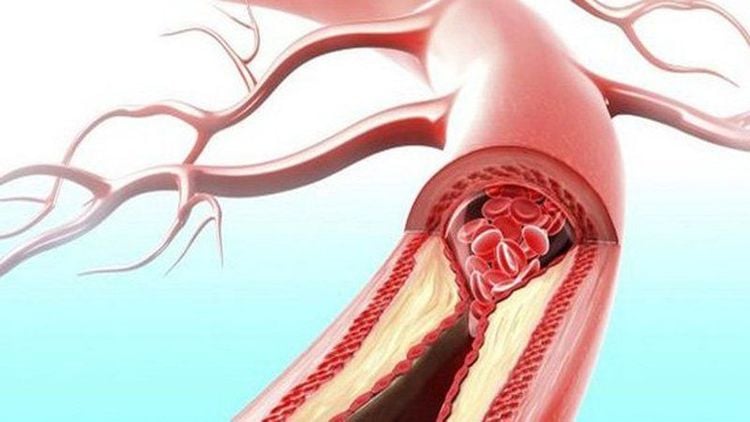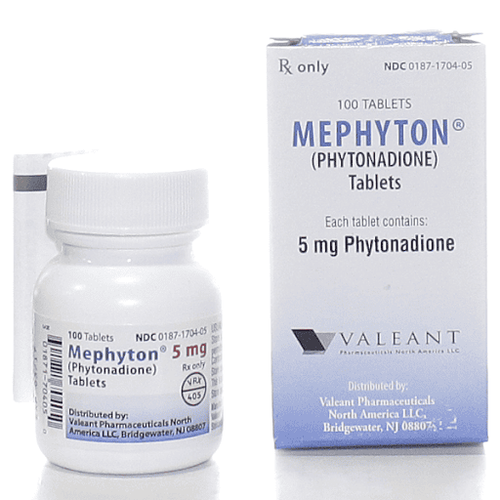This is an automatically translated article.
The article was professionally consulted by Specialist Doctor II Bui Minh Phuc - Department of Obstetrics and Gynecology - Vinmec Ha Long International Hospital. Doctor has more than 18 years working in the field of obstetrics and gynecology.During pregnancy, a woman's body often undergoes many changes both psychologically and physiologically. One of the things that worries pregnant women is the state of intravascular blood clotting during pregnancy with dangerous complications for both the mother and the fetus.
1. Overview
When the body is injured, blood clotting immediately occurs to seal the injury, preventing blood from escaping the vessel wall.Coagulation mechanism is divided into 3 stages as follows:
Platelet wall phase (initial hemostasis phase); plasma coagulation phase; Thrombolytic phase. Disseminated intravascular coagulation (DIC) is a syndrome in which blood clotting begins to become uncontrolled and widespread. Many blood clots begin to form in the blood supply vessels of the organs leading to ischemia.
When there are not enough platelets left in the blood, other parts of the body will begin to bleed even with the slightest damage to the vessel wall. The patient will fall into a paradoxical situation: both have blood clots that block a blood vessel (thrombosis), and have a problem in causing the blood to clot leading to bleeding.

Đông máu nội mạch lan tỏa (DIC) có thể gây thiếu máu cục bộ
2. Intravascular coagulation in pregnant women
The phenomenon of intravascular coagulation in pregnant women is often difficult to diagnose, can only manifest in some signs such as:Chest pain Difficulty breathing Swelling or sudden pain in one leg. Scientists demonstrate that a woman's risk of forming blood clots is highest during pregnancy. During pregnancy, due to the increase of the hormone estrogen and changes in the female veins, the state of intravascular coagulation in pregnant women tends to be 11 times higher than normal. After giving birth from 6 to 12 weeks, the hormones are still not normal, so the risk of blood clot formation is still very high in women and this condition only decreases gradually from 13 to 18 weeks postpartum.
Although intravascular coagulation during pregnancy is rare, if not diagnosed and detected early, it can cause severe coagulopathy leading to complications and high mortality.

Khó thở là triệu chứng thường gặp ở mẹ bầu đông máu nội mạch
3. Complications of intravascular coagulation during pregnancy
Normal people usually have 12 clotting factors (marked I to XII), but if intravascular coagulation in pregnant women occurs, it causes a deficiency of clotting factors (especially factors VIII, IX, XI). It can lead to dangerous complications for both mother and baby.Heart palpitations, rapid breathing, cyanosis, pulmonary artery increased, venous blood pressure increased. Placental abruption : termination of pregnancy after recovery of coagulation factors. Amniotic fluid embolism Stillbirth: need to get pregnant as soon as possible. Infectious miscarriage Shock postpartum blood loss (hemorrhage) Ovarian malignancy Gynecological malignancy: Some people even have a heart attack, stroke or high blood pressure in the veins. Intravascular coagulation during pregnancy is considered a dangerous disease for childbirth because of the lack of blood and associated serious complications. When it happens, it takes coordination between an obstetrician, anesthesiologist and a hematologist to save the patient.
For women with intravascular coagulation disease (DIC) who are not pregnant, they should avoid pregnancy, because if they have a miscarriage and then have an abortion, stillbirth can easily lead to the risk of hemorrhaging (postpartum bleeding). danger to life. For women who are pregnant, they should go to antenatal care periodically for diagnosis, regular monitoring and best advice and support.
At Vinmec International General Hospital, there is a package maternity service as a solution to help pregnant women feel secure because of the companionship of the medical team throughout the pregnancy. When choosing Maternity Package, pregnant women can:
The pregnancy process is monitored by a team of highly qualified doctors Regular check-ups, early detection of abnormalities The Package Maternity package helps to facilitate convenient for the birthing process Newborns get comprehensive care













